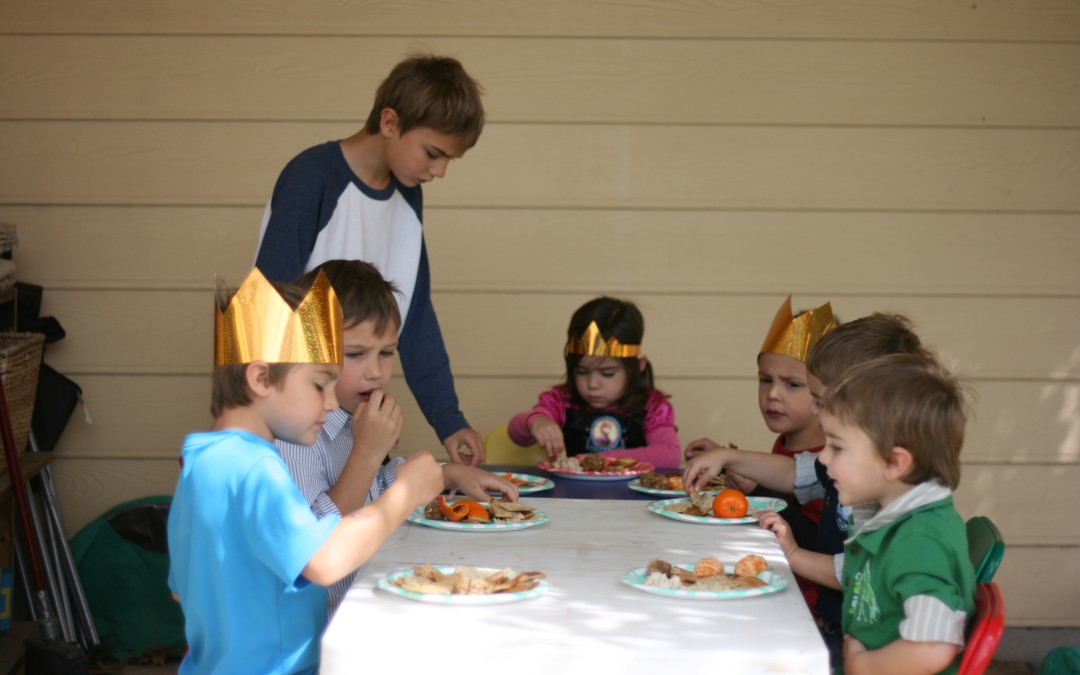I’m no stranger to the kids-in-restaurants debate. It’s been going on for a while, and I always like to keep tabs on it, because I feel pretty strongly about my own point of view. I’ve stayed silent mostly, because I didn’t really want to rock any boats. I’m not a confrontational person by nature and I’ll cry if you look at me wrong, but there are some things that are worth being said.
There are restaurants that have actually banned children from coming to them. Which means, in essence, that parents have been banned as well, since parents can’t always get away without their children. There are also an abundance of people who will make parents feel so miserable when they’re out to eat with their kids that families will resolve to never go to that restaurant again, at least if they have to bring the kids (maybe even without the kids—which would be the case for me). There are people who don’t understand or don’t remember what it’s like to take children out to eat—and why it’s valuable.
I get it, sort of. When a kid’s being loud, it can be a huge distraction. But the thing is, how will children ever learn how to behave in a restaurant if they never get to go to a restaurant in the first place?
Husband and I don’t take our kids out to eat often, and it’s not because of the stares or because we think we’ll make the people uncomfortable. I could care less about that sort of thing. It’s more because have you ever seen the restaurant bill after you’ve taken six kids out? Well, I have, and it’s not pretty.
But on occasion, we do take our kids out for a nice little treat. Usually it’s for a special occasion, like a birthday fun day, where we’ve spent all day out at the city zoo or a children’s museum or walking downtown in the great city of San Antonio, where kids still think it’s cool to go visit the Alamo. So by the time we get to the eating out part, they’re not only hungry, but they’re tired and we’ve had a little too much family togetherness.
My kids are great in restaurants. But they didn’t get that way overnight. They got that way by that amazing tool called Practice.
My kids, like any other person, deserve to eat in a nice restaurant the times we can actually take them. They deserve to sit down to a meal that’s not like the meals they eat in our home every day—because we’re health food junkies—because they turned 7 today or they read a million words for Accelerated Reader or they got into a GT program or they learned to ride a bike or they just accomplished fourteen days clean and dry. They should be able to celebrate without feeling the looks of people who think they should be someone different, someone better, someone quieter and less noticeable.
I understand that you’ve paid for your dinner and all, and you don’t want to hear a kid screaming in the middle of your dinner out (if mine were screaming, I’d take him outside), but I don’t need someone else telling me what I should and should not do with my children. We’ve got a little too much of that going on in our world already.
When I take my kids out to restaurants, they get to experience what it’s like to eat in a place other than their table at home, and they get to learn proper manners in a public setting, and they get to observe the ways that other people conduct their meals and be glad that we don’t allow phones at our table.
I remember back when Husband and I only had a toddler and a newborn infant, and one night we decided to go out to eat, because I was getting cabin fever cooped up in the house all day, but I didn’t yet trust the baby to a babysitter. There was a white-haired couple who came in to the restaurant, and when the waitress asked if the booth beside ours was okay, they took a good long look at us, and I thought, for a minute, that they might say no, they wanted to sit anywhere but here. But then the woman beamed at me, turned to the waitress and said, “Yes, of course.” She put down her purse, promptly perched on the edge of her booth and exclaimed over the new baby. For the next fifteen minutes, this man and woman asked me how old the toddler was and told me what they remembered from their sons’ early days and, at one point, the woman patted my hand and said, “It gets easier. It really does.”
Our food arrived, and she and her husband turned back to their own table. When our check came, it had already been paid.
I wonder how the world might be different if we all had such welcoming, understanding hearts?


